Mentorship Models for a Diverse Workforce
Mentorships have long been a proven strategy for career success. Today’s companies are customizing them to fit the unique needs of their diverse workforce.

Successful mentorships can be career-defining and life-changing. Paired with a good mentor, mentees have the opportunity to learn the ins and outs of their chosen field, expand their professional networks and accelerate their career growth.
According to a survey by the American Society for Training and Development, a full 75 percent of executives say mentoring has been critical to their career development. A CNBC/SurveyMonkey Workplace Happiness Survey found that more than 90 percent of workers who have a mentor say they’re satisfied with their jobs, including more than half (57 percent) who say they are “very satisfied.”
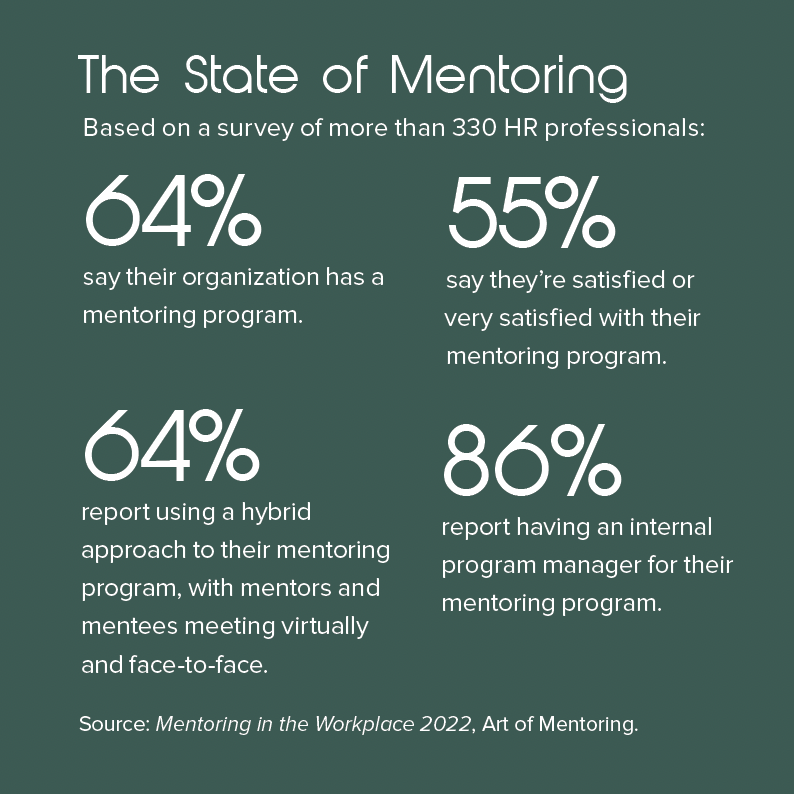
To meet the professional goals of today’s diverse workforce, many mentorship programs are tailored to specific groups of people. Case studies detail how programs are meeting the unique needs of people of color, first-generation college graduates, women business owners and women in traditionally male-dominated fields. Businesses win, too. Many companies that have made an investment in quality mentoring programs have found that they help retain valuable employees.
Indeed, mentees aren’t the only beneficiaries of these arrangements. “Mentorship is a win-win situation,” says Adrienne Mitchell, SHRM-CP, senior people operations partner at software firm DuckDuckGo in Paoli, Pa. “Mentors benefit by refining their leadership skills, gaining fresh insights and the reward that comes from seeing your mentee hit their goals. There is no greater joy than knowing you were a part of someone’s success story.”
Diane Rosen, an executive coach and principal and co-founder of Compass Consultants, a workplace/HR consultancy in New York City, says that mentorships help mentees understand the norms and expectations of a particular organization, type of business and career field. “There’s a transfer of institutional and professional knowledge, and mentors also have something to learn from mentees, who may bring new ideas or perspectives to them,” she says.
Adanta Ahanonu, chief program officer at COOP Careers, a national mentorship program for first-generation and low-income college graduates, says the guidance she received from her own mentor—who helped her transition from the corporate world to the nonprofit sector—inspired her to give back. “With my mentor’s encouragement, I was empowered to make the switch … and follow my passions,” Ahanonu says. “As a mentee, I have seen numerous times how critical receiving mentorship is. As a result, I continue to lift while I climb by offering mentorship myself.”
Following are six examples of successful pairs who have leveraged mentoring programs to build rewarding professional relationships (and friendships) and grow their careers. Their stories illustrate how both traditional mentorships and new and emerging models can help foster professional development for all employees.
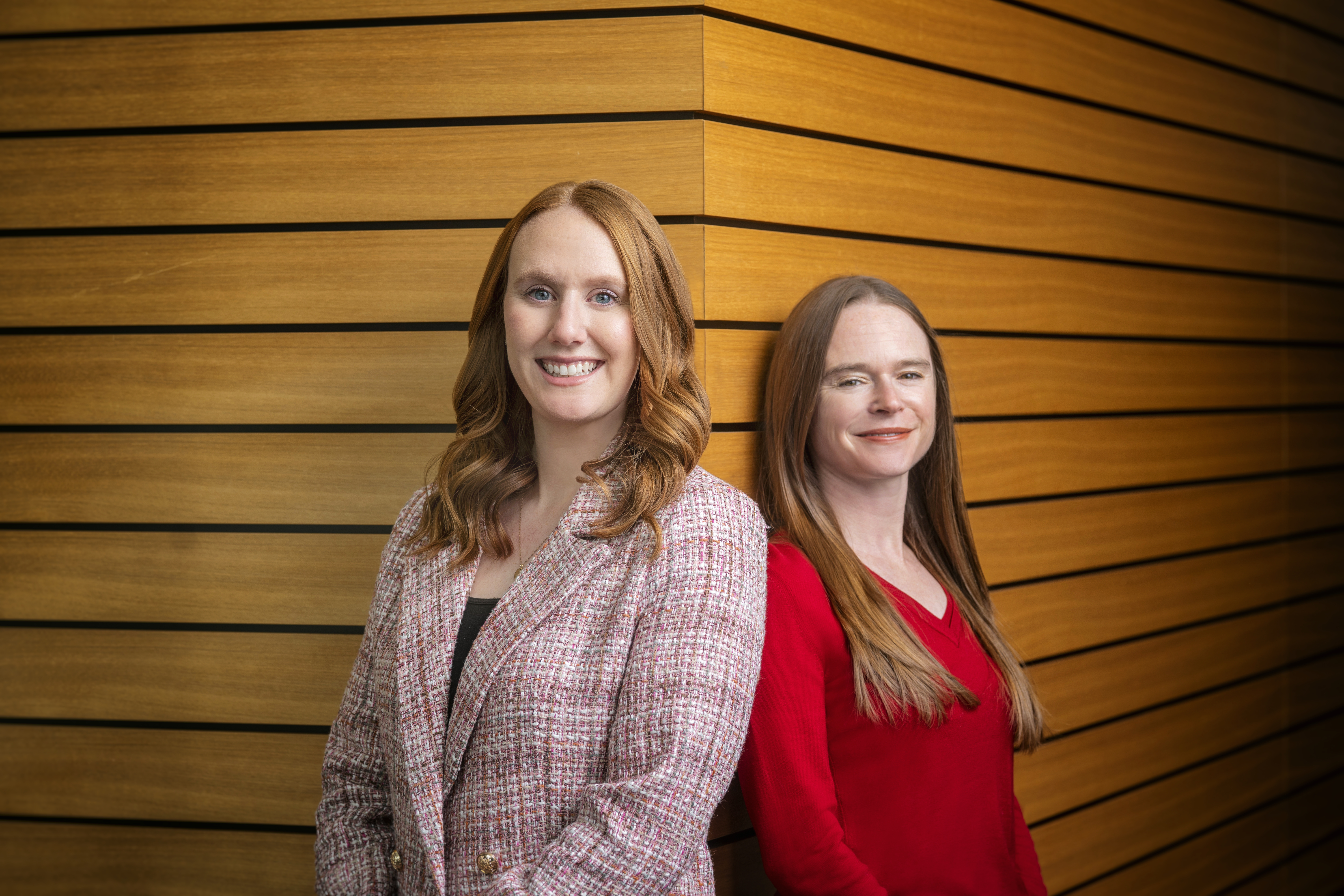
Bonnie & Kelsey: An Outside Perspective
At Raffetto Herman (RH) Strategic Communications, a public relations firm in technology, health care and the public sector with offices in Seattle and Washington, D.C., new hires are matched with a mentor as soon as they start at the company.
“Personally, this attracted me to the organization, as it signaled that RH has a vested interest in my success and career growth,” says Kelsey Clary, a senior public relations associate who joined the company in Washington, D.C., four years ago.
Clary has had multiple mentors at the company, the most recent being Bonnie McLaughlin, RH’s vice president and PR lead, who also works in the company’s D.C. office. The pair meet in person biweekly to track projects and problem-solve. “Her open-door policy makes Bonnie an ongoing resource and supporter in my career and growth,” Clary says. “Setting goals allows our mentorship meetings to stay focused and dive into specific topics.”
“Our mentorship program is designed so that your mentor is not someone you work with on a day-to-day basis, so your discussions never turn into a checklist of what’s happening across your account portfolio,” McLaughlin says. “They’re intended to be growth and problem-solving sessions with someone who has an outside view and perspective.”
While Clary says she has gained a “champion, coach and go-to resource” in her mentor, McLaughlin has also benefited from their relationship. “There’s nothing more rewarding than mentoring a colleague, especially one from whom you can learn,” she says.
“I also share challenges and solutions unfolding in my own work, making the partnership very reciprocal for Kelsey,” McLaughlin adds. “The mentee gains another advocate and confidante at the company, and that deepens the connection we have as an overall organization.”
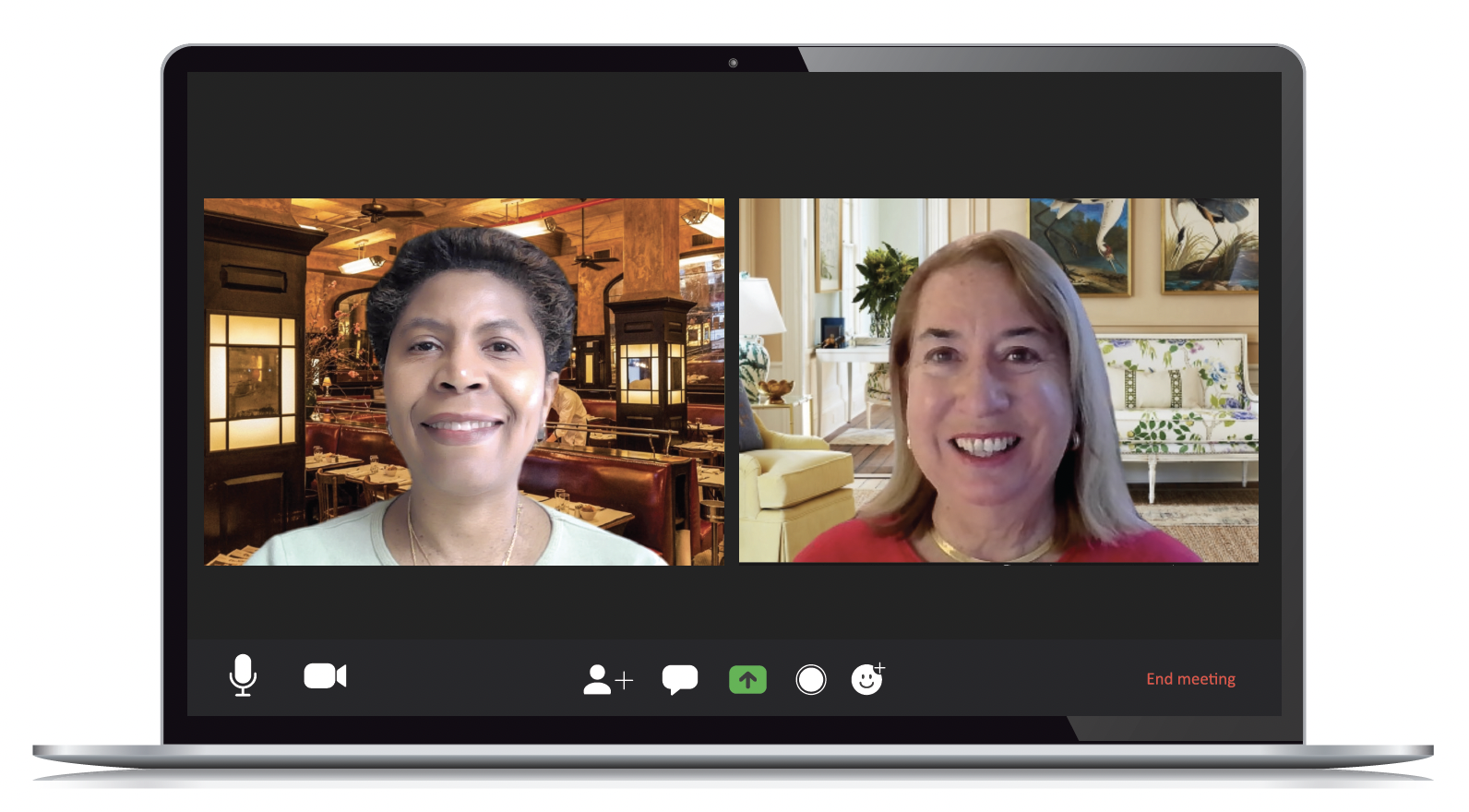
Sandi & Shannon: A Business Plan
Shannon Wilkinson had just launched Reputation Communications, a New York City-based online reputation management firm for CEOs and other corporate leaders. Word of mouth about her firm was spreading. She had steady clients and consistent revenue. However, Wilkinson had few formal business processes in place, and she began feeling overwhelmed.
“Too much day-to-day work depended on me,” says Wilkinson, now based in Hilton Head, S.C. “I did not have a well-conceived marketing system.”
One day, after Wilkinson spoke to Jane Wesman, founder and president of Jane Wesman Public Relations Inc., and then-president of the New York City chapter of the National Association of Women Business Owners (NAWBO), about her new company’s growing pains, Wesman suggested that she join NAWBO’s one-on-one mentorship program, which would pair Wilkinson with an experienced businesswoman.
In 2012, Wilkinson applied and was accepted into the program and was paired with Sandi Webster, a board member of the New York City chapter of NAWBO and founder and CEO of the coaching firm Sandi Webster LLC. “I felt that I could provide valuable guidance to [Shannon] by making minor adjustments that would lead to incremental revenue,” says Webster, who lives in New York City’s Brooklyn borough. “She was a one-woman operation, and I believed she had the potential to make a significant impact on the marketplace.”
The two women met in person every other Friday morning at a New York City cafe, where they dove into the details of how Wilkinson ran her business and determined what she could do to improve her operations. Often, the mentee would present her mentor with a challenge she was facing. In one such case, Wilkinson was trying to launch a new product, a reputation risk report that details the strengths and weaknesses of a company’s top executives, to a major client.
“They weren’t biting,” Wilkinson says. Webster suggested that Wilkinson give the client the report for free.
“The reports were time-consuming to prepare and priced at $10,000 each,” Wilkinson says. “But I followed her advice. Within two weeks, I received a contract for 10 reports. Some of those executives are still clients today.”
The mentoring program had a profound impact on Wilkinson’s business and gave her the foundation she needed to succeed. And Webster gained something in return: a treasured friendship with a fellow business owner and the opportunity to give back.
“Through this mentoring experience, I gained valuable insights into a growing area within the marketing space, which was not something my marketing company specialized in,” Webster says. “Shannon and I have maintained contact, … and I know I can rely on her for assistance if needed.”
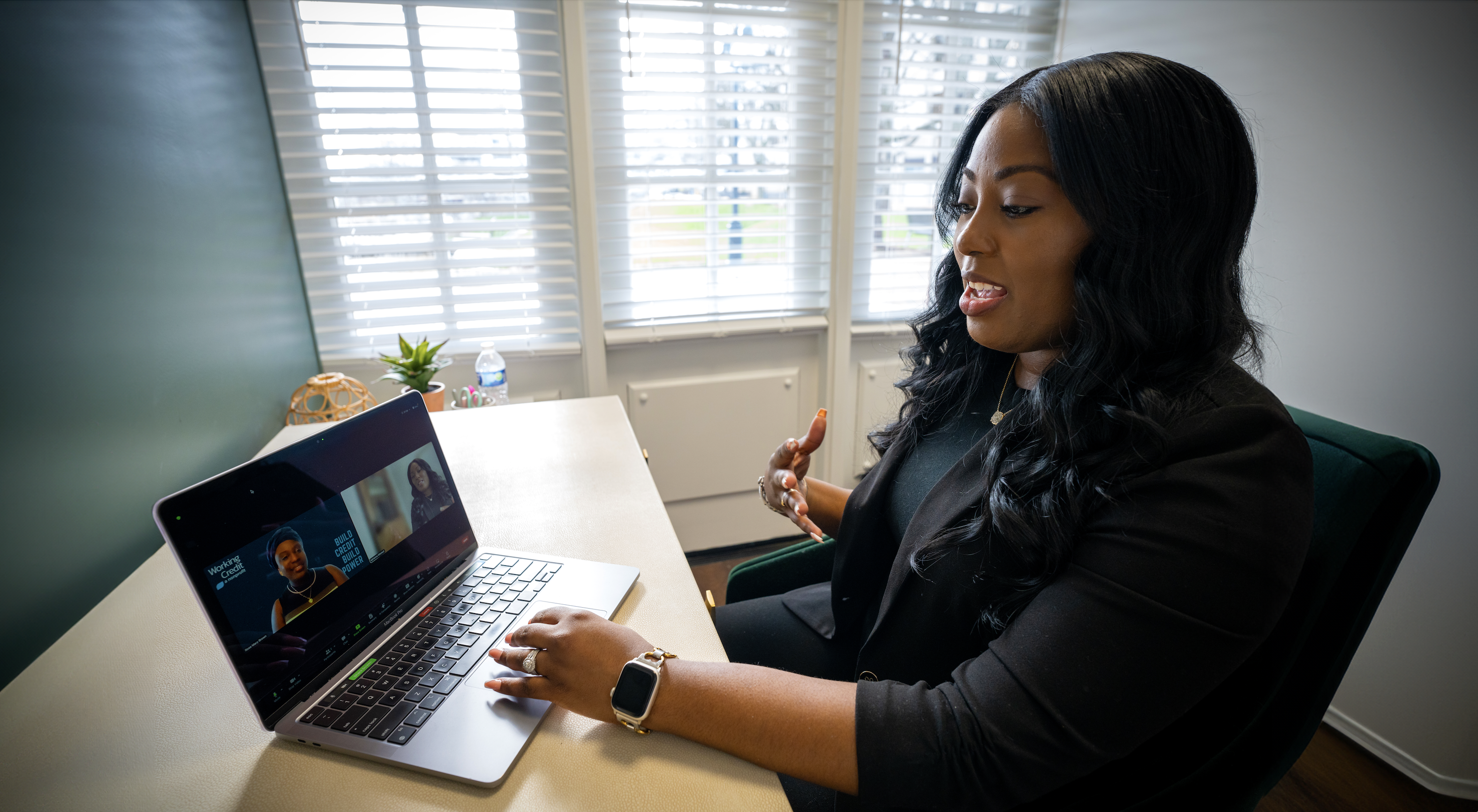
Adrienne & Rosemary: Mentoring for Life
Adrienne Mitchell of DuckDuckGo volunteers as a mentor with Black in HR. This national mentoring program is specifically tailored to Black professionals and fosters professional development through one-on-one mentorships.
Mentees who apply to the program can be at any stage of their career—from a recent graduate to a member of the C-suite. They can either choose their mentor from a list in the Black in HR program or opt to have someone selected for them to match their professional needs.
“My love of mentorship started at a young age, as a volunteer teen counselor at my local Boys & Girls Club,” says Mitchell, who works remotely from Owings Mills, Md. “Then, when I attended college at Morgan State University, my love for mentorship was multiplied through the Morgan mentoring program, when I had the opportunity to mentor girls at surrounding middle schools.”
After signing up to be a mentor for Black in HR, Mitchell was matched with Rosemary Brown, who had just started a position as chief strategy officer at Working Credit, a nonprofit headquartered in Chicago that helps people in any financial situation overcome the obstacles to good credit. For six months, the two women met virtually each week, and then biweekly, as Brown, who works out of Boston, achieved her professional goals.
“Our time together focused on helping Rosemary be successful early on in her role,” Mitchell says. “Some of the topics we discussed were executive presence, how to navigate conflict, people leadership, discovering her executive leadership style and her strengths, and opportunities for growth.”
During the mentorship, Brown learned how to navigate relationships with her new peers on the executive team, communicate her vision more effectively and successfully transition into her role. “I appreciate how Adrienne gave me the space to find my way through topic areas by providing insight and advice, but not making any decisions for me,” Brown says. “She was comforting while still holding me accountable.”

Kristian & Connie: Peer to Peer
Founded in 2014, COOP Careers is a nonprofit national workforce development organization offering mentorships that serve as a bridge from college to career, facilitating the crucial transitions that college graduates must make to secure full-time employment. Having successfully served more than 4,400 mentees since its launch, the primary goal of COOP Careers is to address the “social capital gap” often experienced by under- and unemployed, first-generation, low-income college graduates who may lack the connections necessary to launch their careers and obtain upward economic mobility.
Each spring and fall, COOP convenes diverse peer cohorts of 10 to 16 first-generation college graduates in Chicago; Los Angeles; Miami; New York City; San Francisco; and San Jose, Calif. Each cohort is led by a team of four captains—COOP program alumni who return to serve as coaches, mentors and guides.
Adanta Ahanonu, COOP’s chief program officer, says the organization’s peer-to-peer mentoring model “has been the most impactful in helping recent college graduates achieve full-time employment. Many of the students in our program are on similar career paths and seeking to overcome underemployment or secure their first full-time job.”
Mentees choose among three mentoring tracks: data analytics, digital marketing or financial services. Each tuition-free program runs for 16 weeks, during which time participants meet four times a week to learn technical skills, meet potential employers and build relationships to secure full-time employment.
Kristian Orozco Mejia—now an associate manager of e-commerce at OMD USA, an advertising services firm in New York City—is a program alum who returned to COOP Careers to serve as an executive captain of new mentoring cohorts.
“I decided to take part as a captain in COOP’s mentoring program to be able to pay back to my community,” Orozco Mejia says. “While I was a student, COOP provided me with so many opportunities and learning experiences to be able to land my first full-time job in digital marketing and excel in it. I wanted to help others who are in the same shoes as I was and help them achieve their goals.”
COOP paired him with Connie Peña, who was living in New York City and feeling lost in her career after graduation. “I decided to join because I needed some guidance, and COOP provided that for me,” says Peña, who chose the digital marketing track. There, she learned skills of the trade by meeting both in person and virtually with Orozco Mejia and other peers in her cohort.
“As a trained captain/mentor, I provide mentorship to all my students in the peer cohort,” Orozco Mejia says. “During my time with them, I always made sure they have a checklist of next steps they needed, such as editing a resume.”
For Peña, the COOP mentorship program proved to be incredibly valuable: She learned soft skills, such as how to be effective in interviews; hard skills, such as Microsoft Excel; and how to make an elevator pitch. Peña landed a job as a medical records clerk at Ricigliano & Filopei, a law firm in New York City.
“Besides skills, I gained connections and a strong support system,” Peña says. “I met many peers who had gone through what I was going through and those who were figuring it all out, just like me. Many of us were in the same boat, so we figured it out together, which gave me a sense of security and guidance on the right path to new opportunities.”
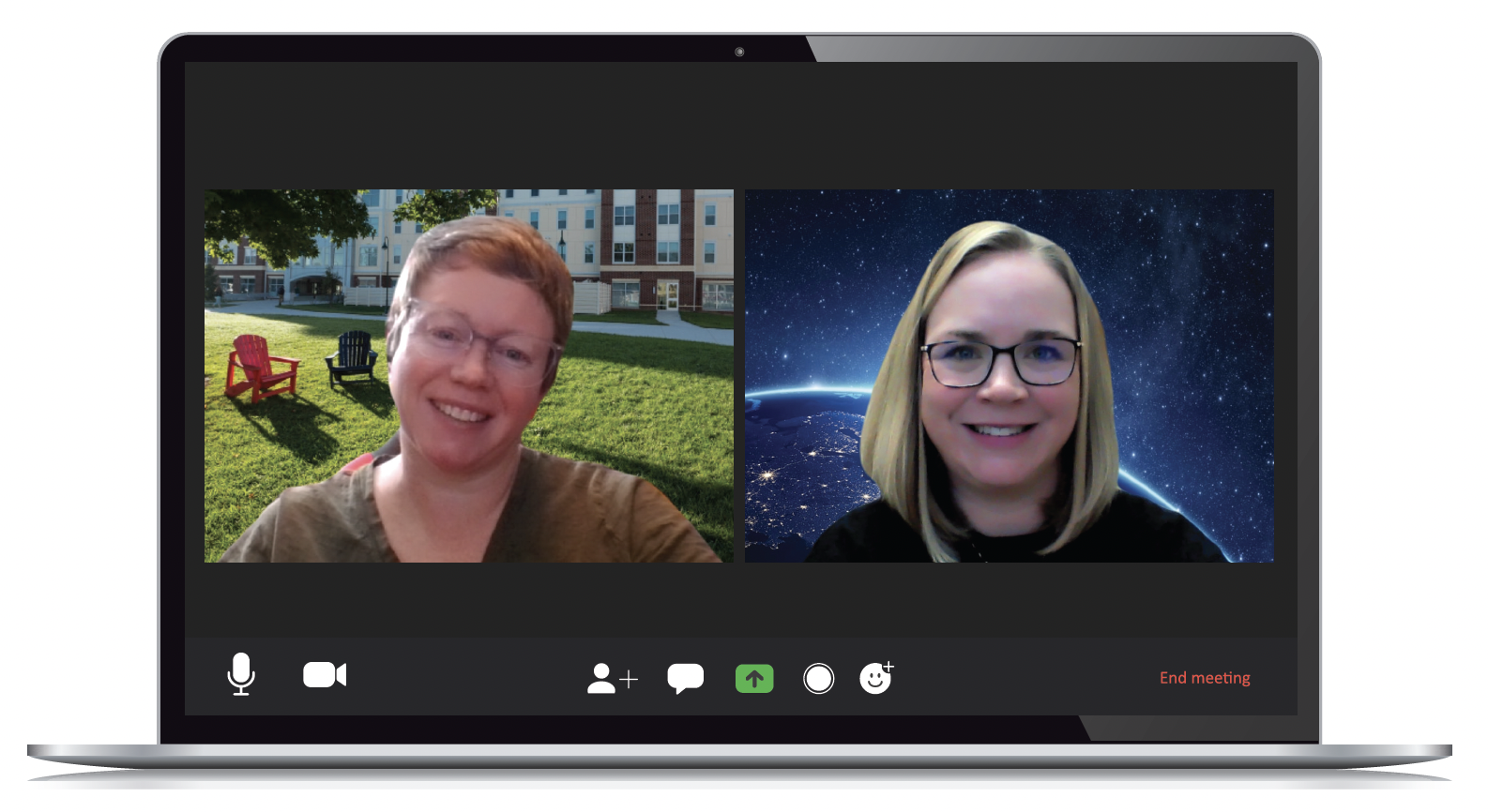
Alice & Stephanie: STEM Challenges
As an assistant professor of chemistry at McDaniel College in Westminster, Md., Stephanie Bettis Homan wasn’t looking for just any professional mentorship. She wanted to learn from another woman who had made it in her chosen field. She knew the hard facts about women in STEM (science, technology, engineering and math): While they make up half of the total U.S. college-educated workforce, the National Center for Science and Engineering Statistics say that women account for only 35 percent of the workforce in STEM. And research indicates that women leave STEM fields at a much higher rate than men.
Homan knew that the few women who attain leadership positions in STEM often leave under the stress of balancing their personal and professional lives. “It was important to me to find another STEM professor who was balancing job responsibilities with motherhood, and the STEM-UP Network was willing and able to arrange that relationship,” Homan says.
The mission of the STEM-UP Network, which was founded in 2011 at Harrisburg University of Science and Technology in Harrisburg, Pa., is to place women from STEM fields into mentorships with other women who can support their advancement. STEM-UP’s signature mentoring program—in which more than 400 women have participated in the past 10 years—pairs students and early-career professionals with experienced professionals based on their chosen fields and goals.
Bilitia “Bili” Mattes, executive director of STEM-UP, says the paucity of women in STEM fields makes this mentoring program crucial.
“Research shows that we lose over 50 percent of the … women in STEM in the first 10 years of their careers for reasons that can often be addressed and overcome,” Mattes says. “This makes addressing the gender talent gap in the STEM workforce with inclusive recruitment, retention and advancement strategies and practices a business imperative.”
Homan met virtually with her mentor, Alice Armstrong—an associate professor in the Department of Computer Science at Shippensburg University in Shippensburg, Pa.—once a month to gain insight into topics ranging from interpersonal interactions with her colleagues to how to advocate for promotions.
“Alice has encouraged me to advocate for myself at work in ways that have helped me to be an effective professor ... while also being present for my family at home,” Homan says. “Until I was in a mentorship with Alice, I didn’t realize how valuable it is to have a mentor to bounce ideas off of and help articulate my needs and desires in the workplace.”
“I connected with Stephanie particularly around issues of being a parent and an academic,” Armstrong says. “My own experience of becoming a parent was not as smooth as I thought it would be, ... and I have found that those experiences mean that I can provide a safe place for people to share and discuss their challenges around this major transition.”
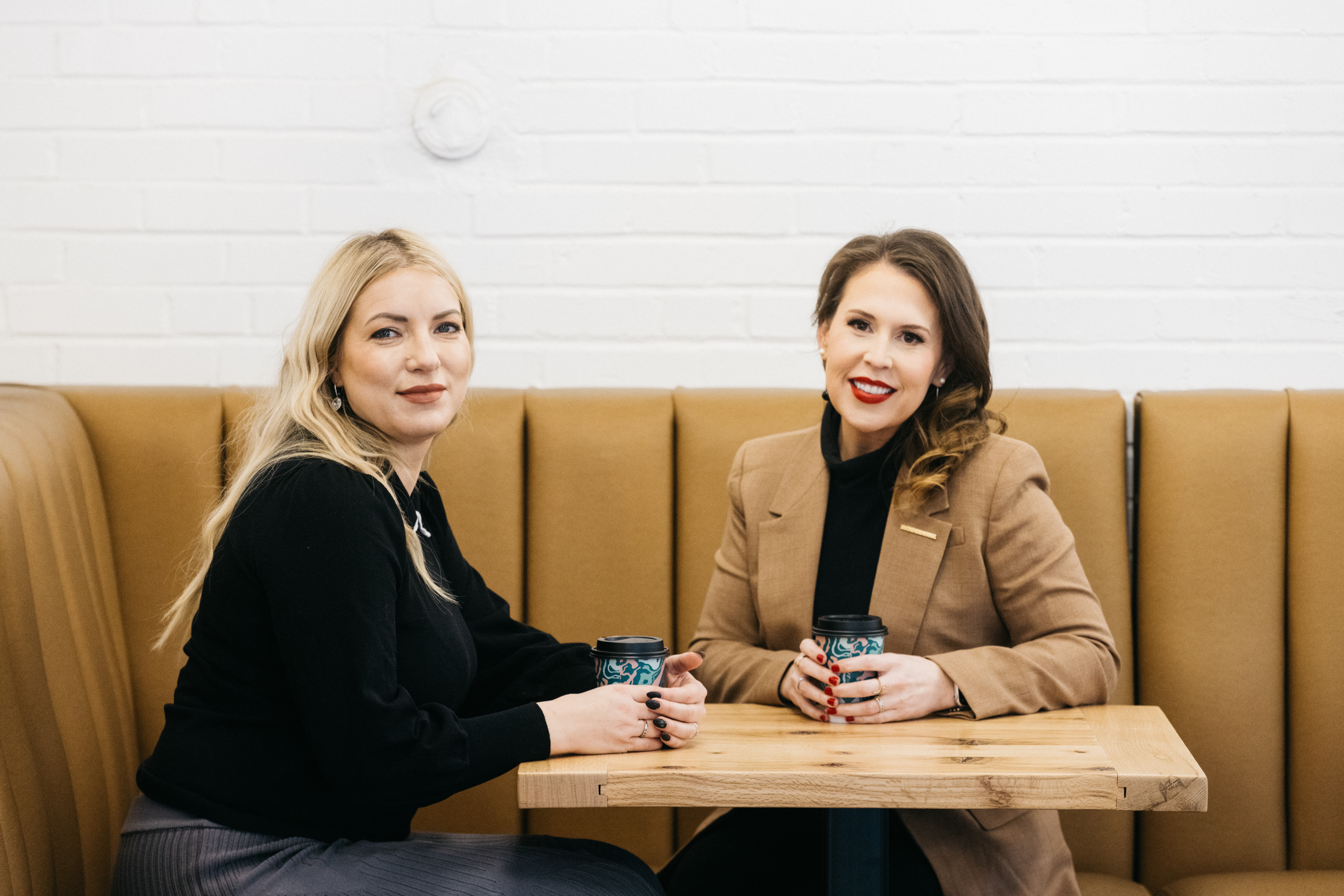
Sarah & Liliya: Moving Up
In 2021, Liliya Joseph, SHRM-SCP, was at a crossroads in her career. She had previously worked in the nonprofit sector as an HR manager, and she wanted to move up. After obtaining her master’s degree in human resources from Washington University in St. Louis, she signed up for the mentoring program at the St. Louis SHRM chapter in hopes of obtaining some career guidance.
The SHRM program is a 12-month partnership that helps HR professionals who have been in the field for at least six months and are looking for career guidance. Each autumn and spring, the program pairs five to 10 HR professionals who want to grow in their careers with seasoned HR leaders.
“Each protege is pursuing personally meaningful goals and has needs that are different from others,” says Rik Nemanick, principal consultant at Nemanick Leadership Consulting, who co-leads the mentoring program. “Good mentors take their lead from their protege, learning what they want to learn and adapting along the way.”
Joseph was matched with Sarah LeMoyne-Davidson, vice president of human resources and a partner at Roeslein & Associates Inc., a St. Louis-based international engineering, manufacturing and construction firm. Once a month for a year, LeMoyne-Davidson met Joseph for coffee in St. Louis or connected virtually to discuss what was going on in Joseph’s career and how she could help.
“Sarah connected me with some useful contacts in the HR industry and made herself available during critical times,” Joseph says. “She was empathetic, kind and generous with her time. [Sarah] has become my guide in workplace advice.”
Today, Joseph works remotely for Los Angeles-headquartered global software company SquareGPS as an HR generalist, and she continues to meet with LeMoyne-Davidson for check-ins. “The impact of the mentorship program is huge, and I would highly recommend it to any future practitioners,” Joseph says. “After the program ended, [Sarah and I] continued our connection and friendship. I’m very grateful for this opportunity.”
LeMoyne-Davidson agrees. “I’ve learned so much from mentees, especially Liliya,” she says. “She helps me remember what it was like as an up-and-coming professional with big aspirations.”
Mentorship Program Best Practices
Want to develop a mentorship program of your own? These expert tips can help you avoid oversights and missteps that can sabotage your program before it’s out of the gate. Make sure you’re deliberate in what you want to achieve, and incorporate a structure that benefits both sides of the mentoring equation.
- Recruit into your program people who genuinely want to be mentors and mentees and are committed to building relationships with one another. “There’s nothing worse than being assigned to someone who has no interest in the program,” says Diane Rosen, an executive coach and principal and co-founder of Compass Consultants.
- Create a formal program and thoroughly screen applicants. “Good programs [will] have an application process that focuses on mentoring those who are willing to put in the time,” says Rik Nemanick, author of The Mentor’s Way (Routledge, 2016).
- Incorporate an orientation. “One differentiator of a good mentoring program is teaching people how to get the most out of the program,” Nemanick says. “Too many programs pair people together and provide a very basic orientation, not really preparing the protege or mentor for their roles.”
- Establish clear goals for what you want to achieve—both on the mentor and mentee side—and show up for them.
- Know when it’s time to end it. “There should be an off-ramp for mentorship pairings that are not working out,” Rosen says. “If either one doesn’t show up for the meetings, it doesn’t work,” adds Sandi Webster, the Brooklyn, N.Y.-based founder and CEO of the coaching firm Sandi Webster LLC. “If either mentee or mentor is unhappy with their match, regardless of reason, ask for a replacement. Time and money are being wasted.” —K.O.L.
Kylie Ora Lobell is a freelance writer in Los Angeles.
Photograph of Sarah & Liliya by R.J. Hartbeck; Photograph of Bonnie & Kelsey by Cassidy Duhon; Photograph of Adrienne & Rosemary by André Chung; Photograph of Kristian & Connie by Adam Lerner; Photograph of Sarah & Liliya by R.J. Hartbeck.


